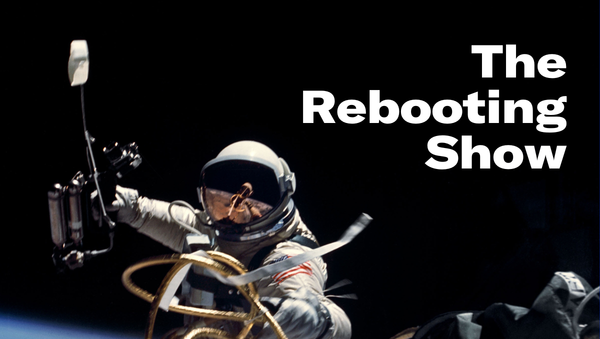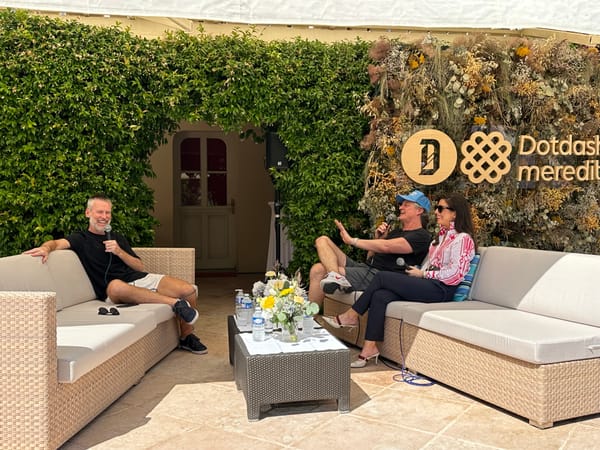The power of partnerships
For all the talk of the creator economy, going solo isn't practical for most
Every Thursday evening, I hitch a ride with my neighbor Franco, a remarkably fast 76-year-old Italian guy, and head three miles south to South Beach. We’re not there to party but to do track workouts with a running group at Flamingo Park. I’ve run for 25 years, but I’ve never been one for the track. But I know what’s good for me. As the heat index scrapes in the mid-90s, a typically South Florida group of people slipping in and out of Spanish and English gather on the infield for the group leader to give his pre-workout talk. Elliott is a source of all kinds of wisdom that applies to more than just running. Some highlights:
- “You want to get faster? Run with people faster than you, try to keep up.”
- “You are not gonna die. I’ve been running 30 years, haven’t managed to kill myself yet.”
- “Humans are social animals. Running in groups makes us better and accountable.”
The last one stuck with me as I’m reading “The Cult of We,” the jaw-dropping story of the utter shit show that was WeWork under Adam Neumann, and contemplating what’s next for me and for what people are calling the creator economy.
One of my biggest takeaways from the wheels coming off at WeWork is that Neumann did a terrible job in putting aside his ego and complementing his undeniable gifts for both seeing the changes to how we work early and in separating rich people from their wallets. He never saw the need to cover up for his obvious deficiencies with a true partner. His nominal cofounder, Miguel McKelveny, comes across as happy to be fabulously rich and willing to cede near total power to Neumann. Instead, Neumann’s closest true partner was Masa Son, the Softbank leader who rather than balancing Neumann’s wild and erratic decisionmaking and seeming indifference to operational rigor by egging him on to be crazier. Reading it makes you wonder why the board never reined in Neumann. But in the end, I believe of his many shortcomings, Neumann’s lack of self-awareness was his greatest.
Nobody likes to admit they need help. This goes double for those with drive and ambition – and, let’s be honest, a healthy bit of ego. We had a town hall one time at Digiday where the CEO and I answered questions. It struck me as a bit corny since we weren’t thousands of people. In any case, one question was about leadership traits. I skipped the pat answer about “vision” and chose “self-awareness.” I think self-awareness is powerful because nobody is good at everything, and in order to “scale yourself” you need to complement your strengths with people who have different strengths. The biggest mistake – and I’ve seen it made by junior managers up to CEOs – is doubling down on your perceived strengths. Our own evaluation of what we’re good at is often not completely accurate, more like “based on a true story.” After all, we’re all the protagonists in the drama we write about our lives.
In media businesses, there are essential partnerships that need to take place between the leader driving the content (and therefore brand) and commercial operations. The great shift we’re seeing as institutions cede power to individuals is, in my view, real and profound. But it is more about a rebalancing. Too often, the notion that “sales solves everything” led to an imbalance of power in publishing businesses, particularly in indirect models where the content was necessary but insufficient. The content was a means to an ends, with the ends being ads or sponsorship sales. The rebalancing we’re seeing is, as more publishing models move to direct monetization through subscriptions and selling products, is the content side is business too.




